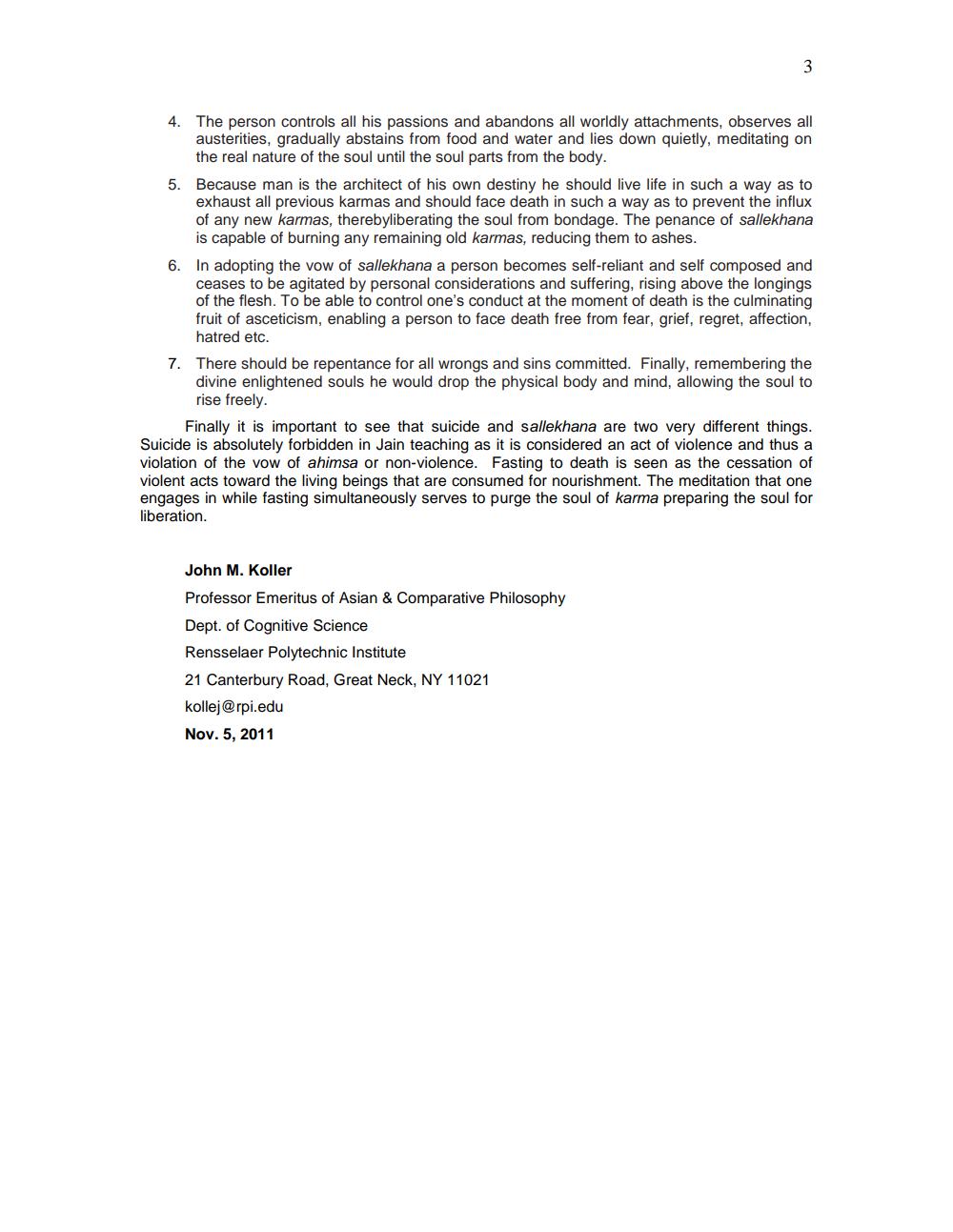Book Title: Sallekhana Author(s): John M Koller Publisher: John M Koller View full book textPage 3
________________ 4. The person controls all his passions and abandons all worldly attachments, observes all austerities, gradually abstains from food and water and lies down quietly, meditating on the real nature of the soul until the soul parts from the body. 5. Because man is the architect of his own destiny he should live life in such a way as to exhaust all previous karmas and should face death in such a way as to prevent the influx of any new karmas, therebyliberating the soul from bondage. The penance of sallekhana is capable of burning any remaining old karmas, reducing them to ashes. In adopting the vow of sallekhana a person becomes self-reliant and self composed and ceases to be agitated by personal considerations and suffering, rising above the longings of the flesh. To be able to control one's conduct at the moment of death is the culminating fruit of asceticism, enabling a person to face death free from fear, grief, regret, affection, hatred etc. 7. There should be repentance for all wrongs and sins committed. Finally, remembering the divine enlightened souls he would drop the physical body and mind, allowing the soul to rise freely. Finally it is important to see that suicide and sallekhana are two very different things. Suicide is absolutely forbidden in Jain teaching as it is considered an act of violence and thus a violation of the vow of ahimsa or non-violence. Fasting to death is seen as the cessation of violent acts toward the living beings that are consumed for nourishment. The meditation that one engages in while fasting simultaneously serves to purge the soul of karma preparing the soul for liberation. John M. Koller Professor Emeritus of Asian & Comparative Philosophy Dept. of Cognitive Science Rensselaer Polytechnic Institute 21 Canterbury Road, Great Neck, NY 11021 kollej@rpi.edu Nov. 5, 2011Page Navigation
1 2 3
